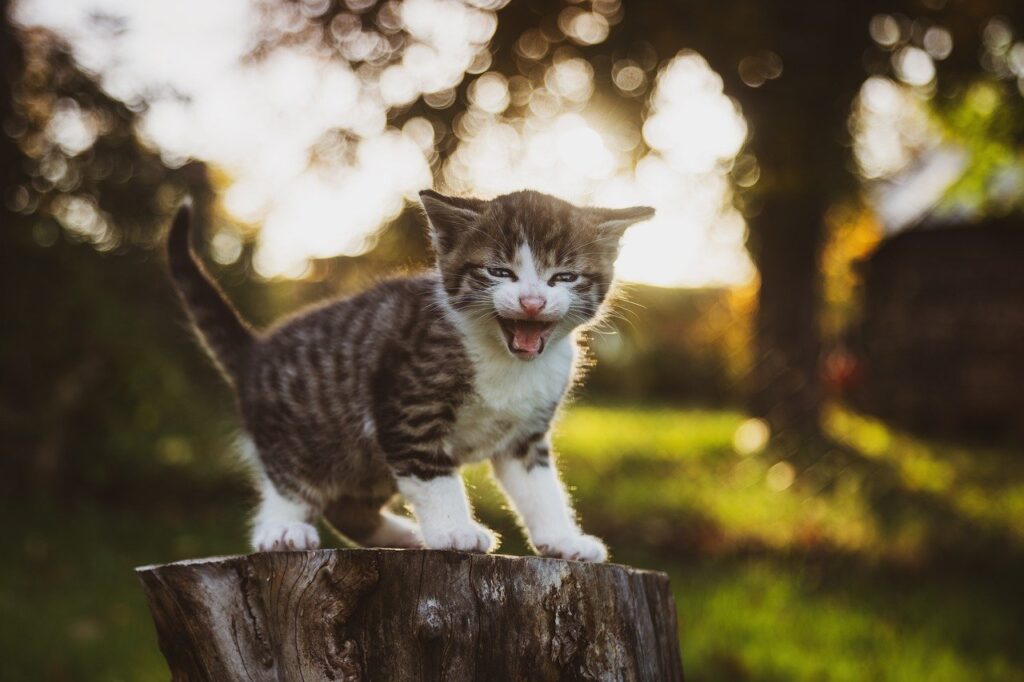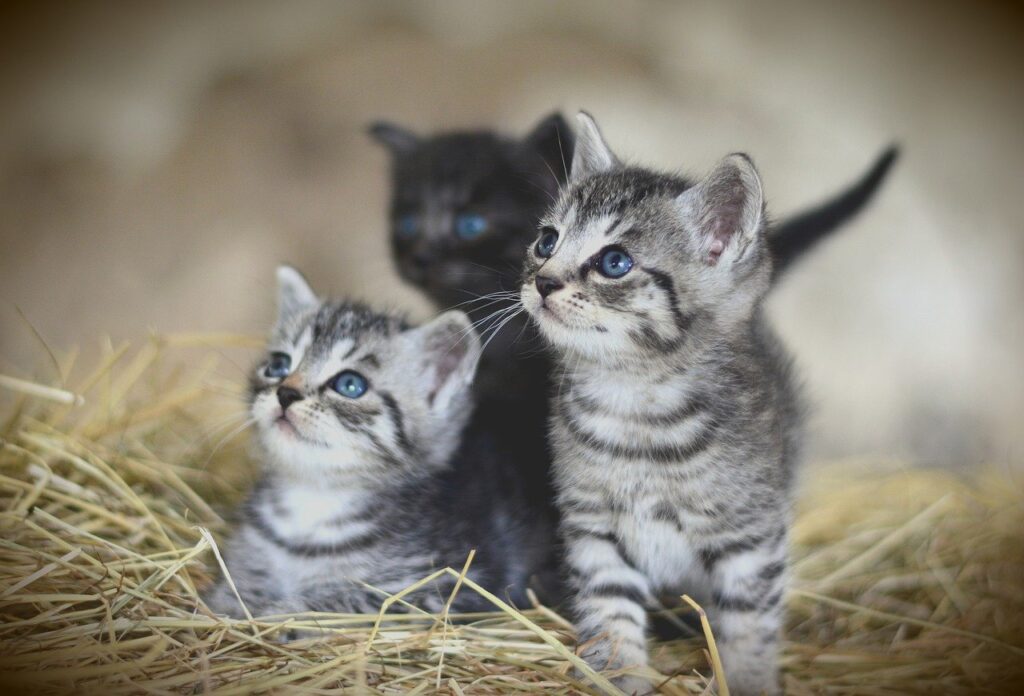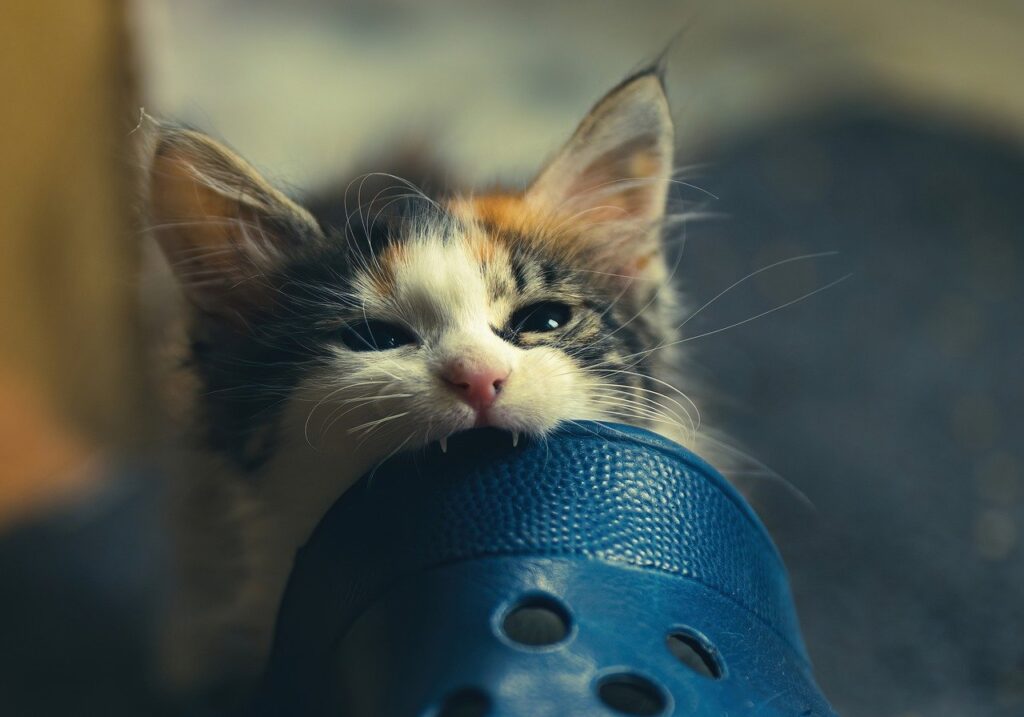Like humans, kittens are born without any teeth. They do start to have their baby teeth at around 3 to 4 weeks old. However, their baby teeth will fall out and get replaced by permanent adult teeth at around 3 and a half to 4 months old. With that said, teething is definitely a vital developmental stage for kittens.
Unlike puppies, kittens do not excessively chew during their teething process and it does not cause them any serious pain. However, they may still exhibit behaviors that tell you that they’re already in the stage of teething, such as the feeling of discomfort or irritation.

In this article, we are going to talk about the signs of kitten teething, how you can help your kitten during this process, and other information that you need to know about kitten teething.
Is it normal for kittens to lose their teeth?
Yes, the loss of your kitten’s baby teeth and growing permanent ones is a normal process of your cat’s development. Usually, you may find that your kitten’s teeth are tiny. This is because your kitten’s body has resorbed the root of the baby teeth, allowing them to fall off much more quickly.
It is important that your kitten lose all his baby teeth so that the permanent teeth will grow accordingly. Any persistent deciduous teeth or teeth that stick around your cat’s mouth will result in adult teeth growing in incorrect angles or positions. This can cause your cat to be prone to gingivitis and other dental diseases. If you think that your kitten has persistent deciduous teeth, make sure to have it checked by the veterinarian since tooth extraction might be needed.
A quick timeline of kitten’s teething process
A kitten’s baby teeth can be seen when he is already about 3 to 4 weeks old. At around 3 to 4 months, their baby teeth will fall out, giving enough room for adult teeth. A cat’s adult teeth will begin as tooth buds placed in the bone of their jaw. As they continue to grow, these teeth will push through the bone and gum tissue to pop out into the mouth. Usually, your cat’s adult teeth are already in place by the time he is 6 months old. Typically, cats have 26 baby teeth that will be replaced by 30 adult teeth.
Signs that a kitten is teething
You can look out for certain behaviors to know if your kitten begins teething. Again, it is normal for kittens to grow and lose their baby teeth. So, don’t be surprised if you notice tiny teeth on your kitten’s bed or even on the floor.
Below are some of the most obvious signs that will help you determine if your kitten begin teething:
1. Missing teeth
You may notice that your kitten lost his teeth but you can’t find the fallen teeth anywhere. You don’t have to worry about this. Even if your kitten swallowed his own teeth, this is not a huge health concern.
2. Excessive chewing
During these times, your kitten’s urgency to chew may increase. You may find them gnawing on your bed, furniture, or even toy that they don’t play with before. They do such things to ease the pressure from emerging teeth.
3. Loss of appetite
If your kitten does not exhibit the urgency to chew, he may start to eat less instead. This might be because their gums are hurting due to growing teeth. It would be a huge help if you provide your kitten with canned wet food that is much easier for them to eat. You can also have them checked by the veterinarian, especially when they are already losing a significant amount of weight.
4. Pawing at the mouth
A kitten may try to paw its mouth because he wants to remove the loose tooth. Pawing may be combined with shaking of the head.
5. Sensitive face
Your kitten may not like it or find it uncomfortable if you touch their face due to oral discomfort. Never try to touch their face during these times as it may cause them to act defensively.
6. Sore gums/mild gum bleeding
When the kitten’s teeth start to erupt, it is possible that they experience mild gingivitis. This will result in inflamed gums and bad breath. You may also see a small amount of blood on their food and water bowls. Usually, this condition will resolve itself after the kitten grows its teeth.
7. Grumpy kitten
It is normal for kittens to be more irritable when their teeth are popping out because it causes sore gums and mouth.
8. Reduced grooming
If you noticed that your kitten is grooming less than usual, it may be because he is experiencing oral discomfort.
9. Other signs
Other common signs of kitten teething include drooling, frequent vocalizing, and bad breath.
Most often, all these signs will resolve on their own. However, it would be best to watch your kitten closely because some of their unusual behavior may be due to a more serious underlying concern. If your kitten bleeds excessively, or if they lost a significant amount of weight like what was mentioned earlier, it is time to have them pay a visit to the veterinarian.
Moreover, if you notice an infection caused by persistent deciduous teeth or a baby tooth that has not fallen out, check them by a veterinarian because a tooth extraction might be necessary. It is just as important to look for signs of gingivitis or periodontal disease, or other oral health concerns.

Does teething hurt kittens?
When talking about the teething itself, it is unlikely to cause pain to your kitten aside from mild discomfort due to the pointy teeth that are poking through their sensitive gums.
However, teething may cause pain or health concerns to your kittens, such as weight loss and excessive chewing. If your kitten starts to teethe, make sure that your house is already kitten-proofed to avoid accidents that may cause severe problems to your kitten’s health.
How to help a teething kitten
Here are some ways you can do to help relieve the soreness and discomfort that is being experienced by your kitten due to teething:
1. Give your kitten soft foods
Providing your kitten with canned food or kibble soaked in water will help him eat more, thus preventing him from losing weight.
Read also: Why my cat refuses to eat and drink?
2. Provide safe things for your kitten to chew on
To help relieve the soreness and irritation that your kitten is feeling, it is suggested to give them something that they can safely chew, such as a damped washcloth, cloth toys, or braided rope. Such items will serve as an outlet to release their urgency to chew excessively.
In addition, there are commercially available toys specifically designed for teething kittens, including nylon- and catnip-based toys. It is still important to supervise your kittens while they play with toys. If their toy has already been worn out and the presence of leaks and tears are already visible, discard the toy immediately.
3. Avoid brushing your kitten’s teeth
It may be painful for your kittens if you brush their teeth during these times since their gums are sensitive.
4. Keep your kittens busy
Plenty of interactive playtimes will help your kitten get physically and mentally stimulated, thus tiring them out – which is a good thing. Some of the things you can provide your kittens with are: scratching posts, pet-safe cat grass that they can snack on, a variety of toys such as sticks and pom-poms, and even a cat condo or tree.
Remember, the more your kitten plays with appropriate toys, the less likely he will chew on your important household items. Playing with toys keeps them busy, helps burn off their excess energy, and assists them in developing their balance, coordination, and strength. Every day, two 10- to 15-minute play sessions will be enough to tire your kitten out.
5. Use positive reinforcement techniques
If your kitten chews on your furniture or electrical cords, you should not punish them for doing it. Instead, use positive reinforcement techniques when your kitten does something good, such as when they play with their toys. Some of the rewards you can give them are food, playtime, or affection.

6. Cat-proof your home
One of the most important things you should do to keep your kitten safe inside the house is cat-proofing your home. This means removing anything that can be dangerous to your pet’s health.
- Kittens tend to chew on cable cords, so buying a cable cords cover is recommended.
- Furniture legs are also tempting for kittens. To prevent them from chewing on your furniture, which can cause splinter, provide your kitten with a scratch pad or scratch post instead.
- You will also have to remove plants that are toxic to cats, such as lilies or tulips.
- Make sure that your food items are far from their reach. Some of the most dangerous food items to cats are chocolate, grapes, garlic, onion, and more.
7. Never let your kitten play with your fingers
It is also important not to train your kitten to gnaw on your fingers, as they can make it a habit even if they are already adults. Make sure that they only get into positive habits early on.
You are already helping your kitten during their teething process by doing these things. Fortunately, the discomfort they are feeling from teething will go away on its own.
Again, if you think that there is something more serious about your kitten’s condition, it is best to take them to the veterinarian for accurate diagnosis and treatment. Never give your kitten any human painkillers unless directed by your veterinarian.
The importance of a good dental care routine for kittens
After your kitten’s teething process, it will be very beneficial for them if you establish good oral hygiene. Preventing the risk of gingivitis, periodontitis, and tooth resorption are some of the positive effects of a good dental care routine.
To give your kitten healthy oral hygiene, make sure that you brush their teeth regularly. Keep in mind not to brush their teeth when they are still in the teething process, as it will worsen their discomfort. It is also essential to give your kitten foods that are specifically formulated for their specific stage of life.
The difference between kitten teeth and cat teeth
Kitten teeth are small, sharp, and with thin roots and a thin coating of enamel. Because this set of teeth will eventually fall out, baby teeth do not require much care compared to cat teeth. Kitten teeth also go by other names, including baby, milk, deciduous, temporary, or primary teeth.
On the other hand, cat, or adult teeth, is much bigger than kitten teeth. They are also cream-colored and have a thicker layer of enamel and longer roots, making them stronger than kitten teeth.
Final thought
To sum it up, teething is normal for kittens, just like with puppies and humans. Therefore, you have nothing to worry about if your kitten begins teething. Instead, help them ease the discomfort and irritation by following some of the tips mentioned above.
Again, while teething is normal for kittens, there are signs that you need to watch out for to know if your kitten should be taken to the veterinarian for proper care. Significant loss of weight and excessive bleeding are only some of the signs that you need to look out for. After your kitten’s teething process, make sure to build a strong and healthy oral care routine to ensure that your kitten’s teeth will not wear out easily. Using positive reinforcement techniques while establishing a proper oral care routine will not only keep your kitten’s teeth healthy but also strengthen the bond between the two of you.
References and Further Reading
